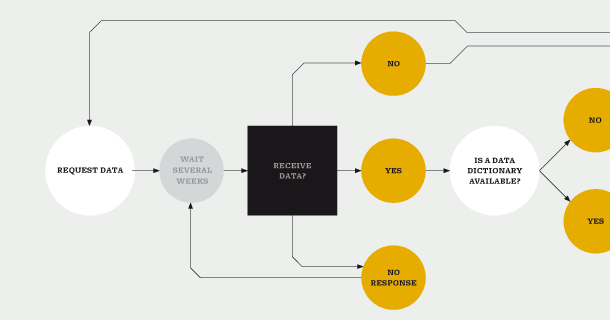The public increasingly relies on data and information from business and government alike to understand their options and make important decisions. But even in our digital age, good information can be hard to find. Most of the policy and planning challenges we face are exacerbated by the difficulty of finding high-quality, relevant data. To achieve the efficiency our region requires to stay competitive, we need better access to comprehensive, current, and accurate data resources, and we need to cooperate across jurisdictions.
Metropolitan Chicago's prominent position as a hub for transportation, communications, and tourism draws skilled people from all over the world, to the benefit of our collective capacity for innovation. With such capacity, our seven-county region can stay at the forefront of information technology if we pool our public and private data resources to create advanced information systems that increase both our economic competitiveness and our governmental transparency.
Better Data Sharing Leads to Better Choices
Residents are served best when government information is freely accessible to all. When public bodies have access to complete, accurate, and timely information, leaders can make decisions that are better for our communities and region. Every government action or decision should be based on high-quality information so all costs, benefits, and alternatives can be considered.
Open sharing of information between public entities will also make it easier to coordinate policies and operations, improving their efficiency. Since its inception, CMAP has been committed to sharing information and analysis to facilitate regional decision making. GO TO 2040 likewise calls for a new region-wide commitment to improving the availability of public information.
Benefits of Access to Information Outweigh the Costs
Local governments have good reason to increase the availability of their data, despite legitimate concerns about cost, staff capacity, liability, privacy, and security. The inefficiency of seeking hard-to-reach data far outweighs the expense of providing data effectively. cmap's technical assistance will help governments and other organizations across the seven counties openly share their data with each other and with the public.
One way public bodies can share and use data will be through the Regional Indicators Project's new MetroPulse website, a powerful, innovative system for tracking economic, environmental, social, and cultural variables that are essential measures of sustainable prosperity. CMAP and The Chicago Community Trust are partners in the project, which develops tools to help understand how investment decisions affect the region, even at the community level. This new website will allow our region to carefully gauge its progress in implementing GO TO 2040.
